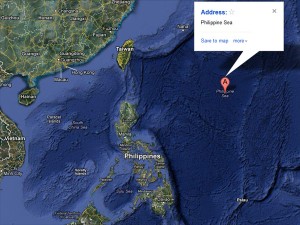
In a press briefing, Foreign Affairs Assistant Secretary for Ocean Concerns Gilberto Asuque told reporters that under the rules of the UNCLOS, the Philippines and China would each appoint a member to the tribunal, and the other three members would be appointed based on an agreement by the two parties.
In its “notification of statement and claim” filed before the UN, the Philippines noted that it had appointed Judge Rudiger Wolfrum as a member of the said panel. China, however, had not yet given a statement of whether it would participate in the case.
The Philippines initiated the compulsory proceedings against China as provided for under UNCLOS, and asked the UN to declare the Chinese “nine-dash line” outlining its claim to most of the South China Sea, including waters and islands close to its neighbors, as invalid and illegal.
It also demanded that China “desist from unlawful activities that violate the sovereign rights and jurisdiction of the Philippines under the 1982 Unclos.”
A total of 60 days to comply
Asuque also noted that the case was not about territorial claim or issues but “what we are raising is the interpretation and application of China of their obligation under UNCLOS.” He noted that the case was “a case of first impression” or the first of its kind.
“The Philippines does not seek in this arbitration a determination of which party enjoys sovereignty over the islands claimed by both of them. Nor does it request a delimitation of any maritime boundaries,” the government said in its submission.
In its submission, the Philippines asked the UN to compel China to respect the Philippines’ rights to exclusively explore and exploit resources within its EEZ and continental shelf as declared under Unclos, citing recent Chinese actions that constituted an excessive exercise of sovereignty over disputed territories.
Asuque noted that under the rules, parties have a total of 60 days for the formation of the arbitration panel.
“The other party to the dispute shall within 30 days of receipt of the notification referred to in Article 1 appoint one member to the panel. The other three members shall be appointed by an agreement between the parties,” Asuque said as he read the rules before the media.
“If within 60 days of receipt of notification the parties are unable to reach an agreement to the appointment of one or more members of the tribunal to be appointed by the agreement……Then you have to go now to the President of the International Tribunal on the Law of the Sea,” Asuque said.
Asked about the possibility of China not participating in the case, Asuque noted that he did not want to anticipate China’s actions.
He also noted that if China would refuse, the country “will pursue the procedures and remedies available under Annex VII of UNCLOS” to achieve its goal.
“Annex VII of UNCLOS provides for compulsory proceedings with binding decision,” he said, adding that the procedures provide for peaceful resolution of disputes under international law.
Noting that both countries are signatories to the 1982 UNCLOS convention, Asuque said that countries should comply with treaty obligations in good faith.
International support sought
Asuque noted that a fact circular about the Philippines’ move was sent to all the country’s posts abroad, including the embassies, permanent representatives to the United Nations in New York, the UN in Geneva, the World Trade Organization (WTO) in Geneva, the International Maritime Organization (IMO) in London, the Association of South East Asian Nations (ASEAN) Secretariat in Jakarta, and the registrar of the International Tribunal on the Law of the Sea (ITLOS).
“Ambassadors and permanent representatives were instructed to send note verbale and present the copy of the notification and statement of claim,” he said.
“Also they were instructed to seek the support of the host country or the international government organization to the efforts of the Philippine government to seek a peaceful and durable solution to the dispute in the West Philippine Sea,” he added.
Asuque noted that they had notified the ambassadors of the member-states of the Association of South East Asian Nations (ASEAN) as well as representatives from the embassies of Japan, Korea, New Zealand, Australia, and the European Union. Members of the diplomatic corps in the Philippines had also been informed, he added.
“We ask the countries to support the Philippine effort for a peaceful and durable solution to this dispute….We’re asking them if they can convince their own political leaders that this is the right course of action taken by the Philippines as a peaceful way to resolve the dispute because this is prescribed under international law,” he said.

